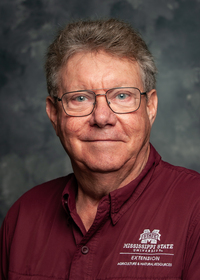Information Possibly Outdated
The information presented on this page was originally released on November 20, 2000. It may not be outdated, but please search our site for more current information. If you plan to quote or reference this information in a publication, please check with the Extension specialist or author before proceeding.
Delta Farmers Welcome Pesticide Disposal Effort
MISSISSIPPI STATE -- The success of a recent waste pesticide collection in Sunflower County demonstrated Delta farmers' commitment to protecting the environment and the need for similar programs in the future.
Farmers from 22 counties across the state, primarily Delta counties, brought 86 truckloads of unusable pesticides to the town of Drew on Nov. 14. Contributions came from as far away as Jasper and Claiborne counties. The event, the 40th of its kind in the state since 1994, brought in 150,159 pounds of waste pesticides, which include insecticides, fungicides, herbicides and plant growth regulators.
"That was an incredible amount of pesticides and by far the most of any of the previous collections," said Jimmy Bonner, assistant specialist and water quality coordinator with Mississippi State University's Extension Service. "This shows there is still a great need for waste pesticide collections."
The Mississippi Department of Environmental Quality provided funding for the program through the Environmental Protection Agency, and MSU's Extension Service and the Bureau of Plant Industry coordinated the program.
Mississippi does not have a facility licensed to dispose of hazardous wastes such as pesticides. Programs such as the one in Drew are necessary when farmers have pesticides that become unusable because of labeling changes or lost effectiveness due to time.
"The turnout for this program proves that farmers care about the environment and the water resources of this state," said Zoffee Dahmash, chief of the Non-Point Source Section with Mississippi's DEQ. "With this kind of interest, it points to the need for funding more programs in the future."
Dahmash said DEQ has worked closely with farmers to reduce the impact of farming on state water resources. Organized collection events are the safest way to dispose of pesticides.
"Any other way of disposing or storing pesticides will create a risk to humans, livestock and the environment," he said. "Appropriate disposal is a costly procedure. A licensed hazardous waste contractor must be hired to take the pesticides to a special facility."
Bonner said the effort brought several agencies together with farmers to address the challenge of disposal.
"Other state's have envied our work in pesticide disposal. We've collected almost 1 million pounds of pesticides since 1994, and that takes a team effort," Bonner said.
"It takes funding to pay the contractor, a promotion plan, farmer participation and cooperation from local officials to obtain a suitable collection site," he said.


